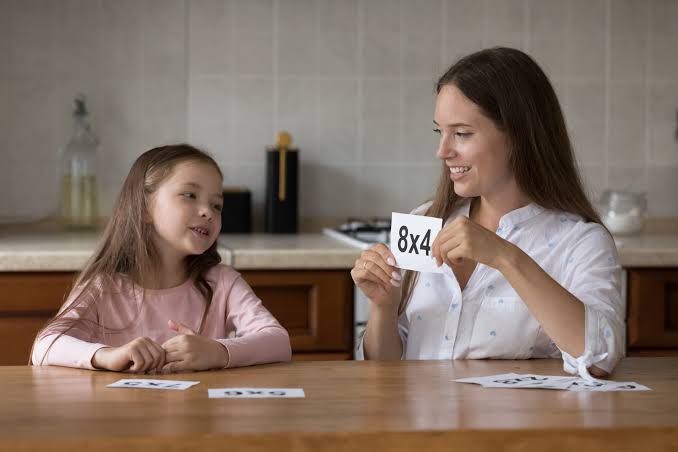Middle school math can be a real headache for many students. As concepts become more abstract and challenging, many seventh graders struggle to keep up.
The jump from elementary to middle school math introduces algebraic thinking, complex geometry, and other concepts that build foundations for high school math.

Finding the right support for your child during this critical educational stage can make all the difference. A private math tutor can transform your child’s relationship with mathematics, turning frustration into confidence and even enjoyment.
Assessing Your 7th Grader’s Math Needs
Before diving into your search for the perfect tutor, take time to understand exactly what your child needs.
Identifying Struggle Areas
Common areas where 7th graders stumble include algebraic equations, proportional relationships, geometry proofs, and probability concepts. Talk with your child’s teacher about specific topics giving them trouble.
Recognizing When Tutoring is Needed
Warning signs that your child might benefit from a 7th grade math tutor include falling grades, homework avoidance, test anxiety, or expressions of math-related frustration. According to a recent study, about 30% of parents reported seeking academic help outside of school to address their child’s specific learning needs (NCES).
When searching for educational support, many parents discover that private 7th grade math tutors provide the personalized attention needed to address these challenges effectively. These specialized instructors understand the unique hurdles students face at this grade level and can adapt their teaching approaches accordingly.
Understanding Learning Styles
Some students are visual learners who need diagrams and charts, while others learn better through hands-on activities. Knowing your child’s preferred learning style will help you find a tutor who can teach accordingly.
Essential Qualifications to Look For
A strong tutor needs more than just math knowledge. They need teaching skills and the ability to connect with middle schoolers.
Academic Credentials
While a degree in mathematics or education is valuable, it’s not the only qualification that matters. Look for tutors with specific experience teaching middle school math concepts and familiarity with your school’s curriculum.
Teaching Experience with Middle Schoolers
Middle school students have unique learning needs. A tutor experienced with this age group will understand how to engage 12-13-year-olds effectively. They’ll know how to explain abstract concepts in relatable ways that make sense to developing minds.
Understanding of Current Math Standards
Math teaching has changed dramatically in recent years. The best tutors stay current with Common Core or other state standards that inform your child’s classroom experience.
Teaching Approaches That Work
The method of instruction can be just as important as the knowledge being shared. Effective tutors employ various strategies to ensure concepts stick.
Student-Centered Learning
- Effective tutors adapt their approach to fit your child’s needs rather than sticking to a rigid program.
- They start at your child’s current level, building on strengths and addressing learning gaps.
Real-World Applications
- Seventh-grade students engage more when they see the real-life value of math.
- Good tutors connect concepts to everyday situations—like using geometry in architecture or algebra in budgeting.
Technology Integration
- Many tutors use digital tools to support learning.
- Interactive websites and math apps make abstract ideas more accessible and practice more engaging.
Transformative Teaching
- The teaching method is as crucial as the content itself.
- The right tutor not only helps solve current challenges but also lays the groundwork for long-term success in math.
Beyond Math Skills: The Personal Connection
A tutor’s personality and communication style play a crucial role in the effectiveness of the tutoring relationship. Middle school students, especially seventh graders, learn best from someone they trust and feel respected by.
Building rapport is key—great tutors take the time to connect with students beyond academics, showing genuine interest in their lives and celebrating every bit of progress, no matter how small.
Communication also matters deeply at this age. Students benefit from clear, patient explanations delivered without condescension. Skilled tutors can explain the same concept in multiple ways and know when to gently push or when to ease off, based on how the student is responding.
Most importantly, effective tutors create a supportive environment where students feel safe to make mistakes, ask questions, and embrace the learning process without fear of judgment. This kind of atmosphere helps normalize struggle and fosters lasting confidence.
Vetting Potential Tutors
Finding a qualified tutor involves more than just a quick online search—it requires a thoughtful approach to ensure the best fit for your child. Start with the interview process by asking targeted questions about the tutor’s experience with seventh-grade math.
Ask how they would teach a concept your child finds challenging; their response can offer valuable insight into their teaching style and adaptability.
Trial sessions are another essential step. Many reputable tutors offer a free or low-cost session to gauge compatibility. Take this chance to observe how they engage with your child and whether their style supports your child’s learning needs. Lastly, watch out for red flags.
Avoid tutors who struggle to explain their methods, seem unfamiliar with the current curriculum, or speak negatively about students. Be cautious of anyone promising rapid grade improvements without first understanding your child’s unique learning profile.
Measuring Success and Progress
Establishing clear methods to track improvement helps ensure tutoring is effective.
Setting Benchmark Goals
Work with the tutor to establish specific, measurable goals. These might include mastering certain concepts, completing homework independently, or achieving target test scores.
Beyond Grades
While improved grades are important, look for other signs of progress: greater confidence, willingness to tackle challenging problems, or decreased anxiety about math. Research shows that students who receive targeted support through structured tutoring programs can improve their learning outcomes by as much as 50% compared to those who don’t receive assistance (Education Trust).
Conclusion
Choosing the right private math tutor for your seventh grader is a meaningful investment in their education and confidence. As math concepts grow more complex during middle school, having a knowledgeable, adaptable, and student-focused tutor can make a significant difference, not just in grades but in your child’s overall mindset toward learning.
By understanding your child’s unique needs, evaluating potential tutors carefully, and setting clear goals, you can ensure that tutoring becomes a powerful tool for long-term academic success. With the right support, your child won’t just keep up in math—they’ll have the opportunity to thrive.
FAQs
- How often should my child meet with their math tutor?
Most students benefit from one or two weekly sessions of 60-90 minutes each. Consistency is more important than frequency. Regular sessions with practice time work better than cramming multiple sessions close together.
- How can I reinforce what my child learns during tutoring?
Ask the tutor for suggestions of practice problems or activities. Many tutors provide homework or recommend apps and websites for additional practice. Show interest in what your child is learning and celebrate their progress, no matter how small.
- Should I be present during my child’s tutoring sessions?
While initially observing can be helpful, most middle schoolers work better one-on-one with their tutor. Being nearby but not hovering allows your child to develop independence while ensuring safety.






